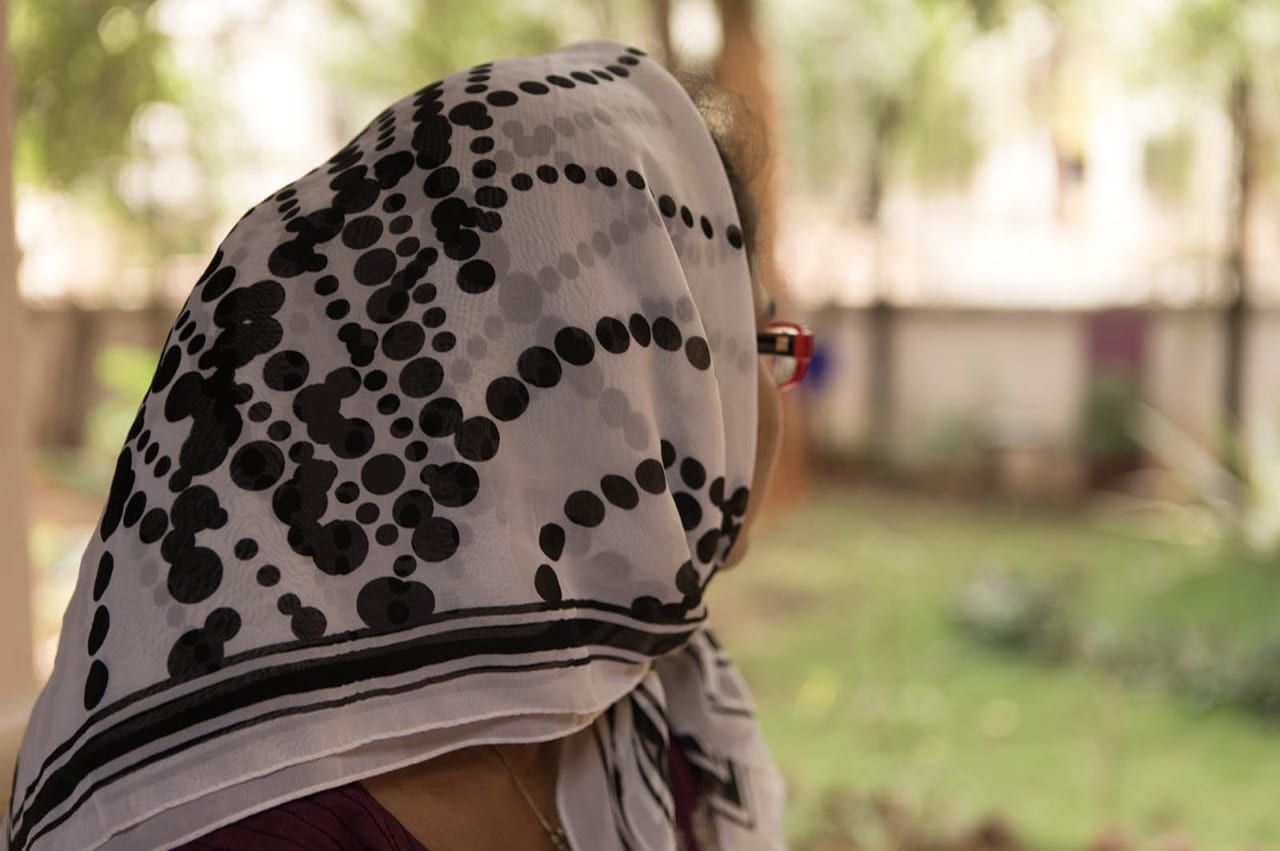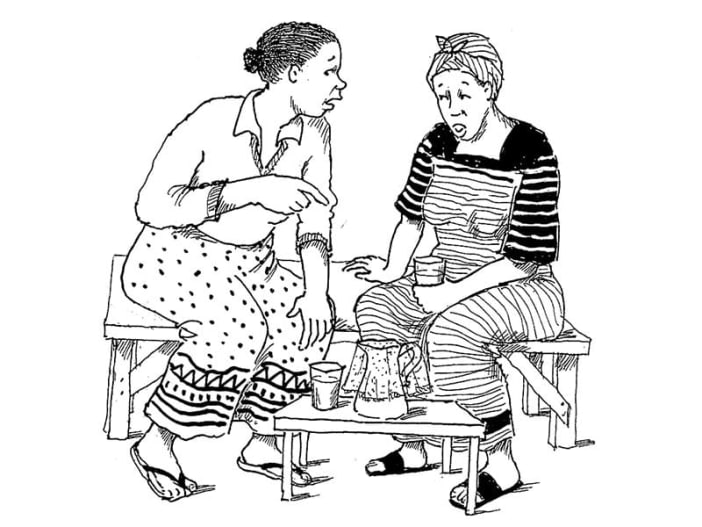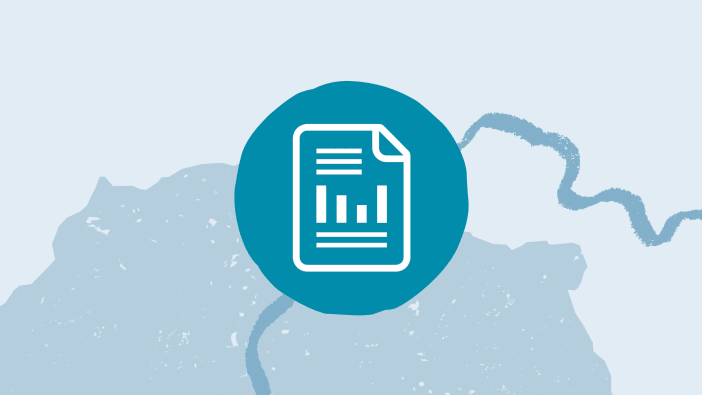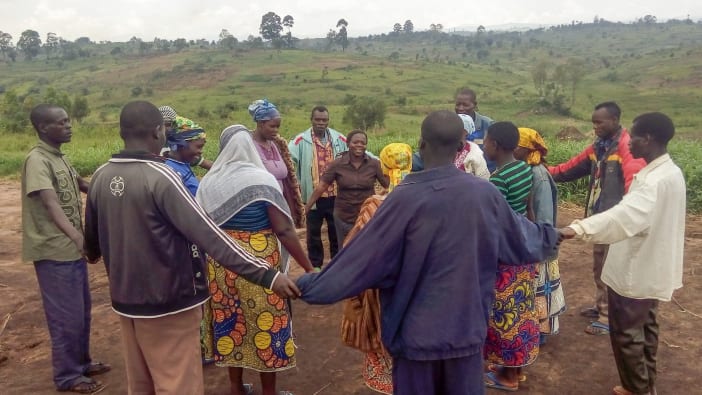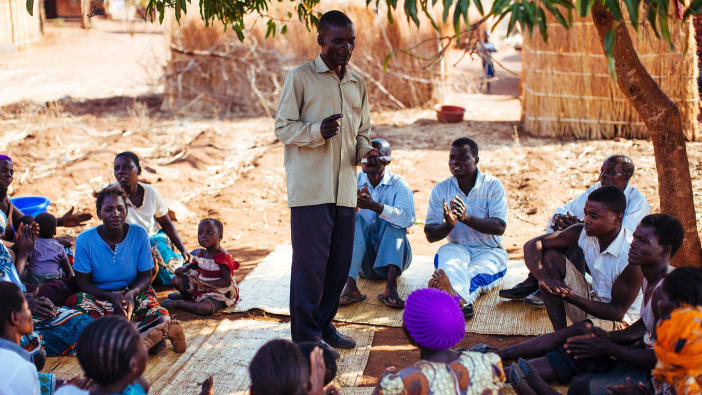Survivors of sexual and gender-based violence (SGBV) often keep silent about their ordeal, which adds to their sense of isolation. Reasons for not speaking out may include threats from the perpetrators, fear of stigma and discrimination, and a lack of hope that anyone could help them.
Survivors face damage to every area of their lives. They may experience:
- physical health problems
- mental health conditions such as depression and anxiety
- emotional pain
- problems with sex and intimacy
- substance addiction
- failure to pursue a career (eg dropping out of school)
- family disintegration (eg in the case of rape by a relative).
Support groups allow survivors to speak about their pain in an atmosphere of acceptance, where they can begin the process of healing.
Starting support groups
In South Africa, Tearfund and its partners began taking small groups of survivors through a programme called Journey to healing. This is a three-day workshop where women have the chance to tell their stories and share their pain through creative expression. Although it is only the start of the healing process, it made a big difference to them.
But after they had spoken about their pain, then what? They needed ongoing support. We set up a place where they could meet together weekly in their communities. These follow-up groups often use a manual called Out of the shadows, into the light, which covers forgiveness and other topics. Forgiveness can never be forced, but we find that it is needed in order to ensure healing is taking place.
Improving livelihoods
It is very hard to sustain healing without looking into other areas of individuals’ lives. Many of the women were struggling to put food on their tables. We helped them form savings-and-loans groups, which allowed them to take loans to start small businesses. We also helped them learn business skills and think about how they could continue their education.
Training Champions
As more support groups formed, we realised we needed more people to help run them. We selected survivors to become what we call Champions, and trained them in social work skills, administration, conflict management, advocacy and lay counselling. They have become such strong leaders, and help to ensure the movement is sustainable.
Survivors changing society
We find that each group sees the needs in its own community and comes up with an activity to help in some way. For example, in one group there were many women who had been raped at an early age while their parents were out at work. They realised that a lot of children in their community were similarly vulnerable, so they set up a homework club, preventing those children from having to be at home alone.
Tearfund won a prize at the Charity Awards 2018 for its work with survivors in South Africa. We have also started survivor movements in Burundi, Chad, DRC, Liberia, Mali, Myanmar and Nigeria. We are now planning to scale up our work and mobilise a global movement of survivors.
Tips for starting a support group
by Adrienne Blomberg
You do not have to do it the same way that we have! But using a manual such as Journey to healing can be helpful. It is also useful to do some training in facilitation skills and pastoral care, and to have a sound knowledge of SGBV issues.
1. Create a place of safety, where the principles of trust and confidentiality are laid before anything else.
2. Ensure meetings are easily accessible. Can they be reached by public transport?
3. Make sure you can offer ongoing support. If you offer an initial workshop, ensure there are support groups that the women can progress to.
4. Take a holistic approach. Think about ways of meeting other needs the survivors may have, such as forming a savings-and-loans group.
If you are interested in using Journey to healing or our other resources, contact Solange Mukamana at [email protected]


